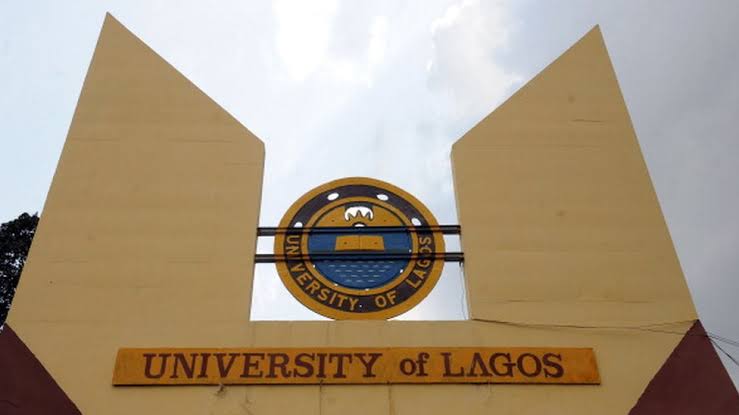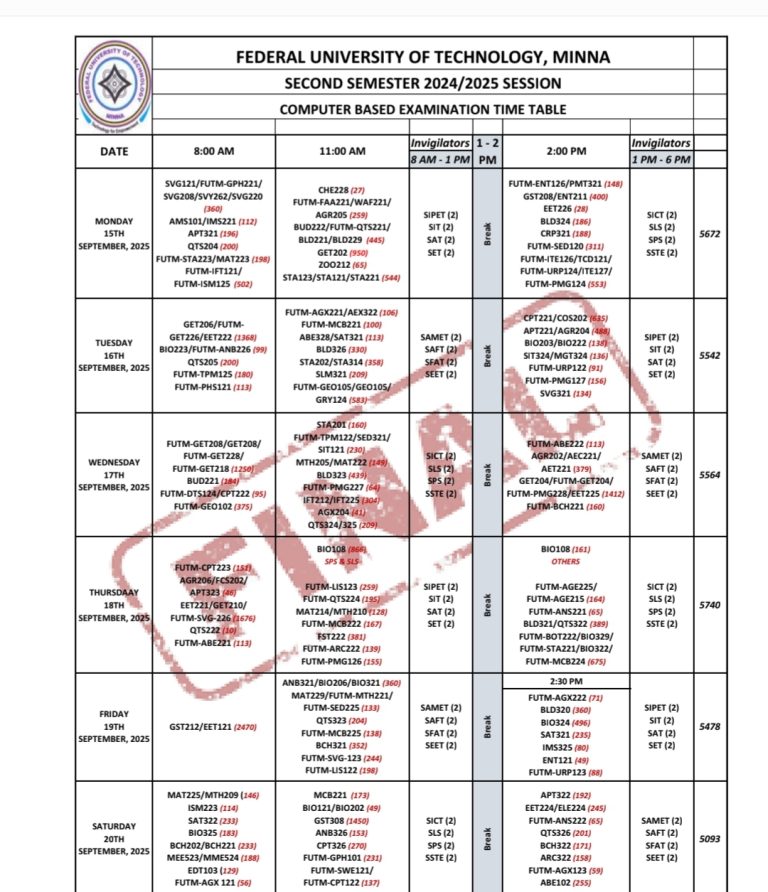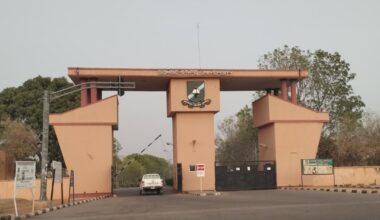The management of the Federal Polytechnic, Bida, has officially suspended all activities of the Academic Staff Union of Polytechnics (ASUP), Bida Chapter, following a wave of tension that has gripped the institution in recent days. This development has not only thrown the academic community into a state of uncertainty but has also sparked wider debates about industrial relations, staff welfare, and the rights of students in Nigerian higher institutions.
Background: Why ASUP Is in Dispute
The Academic Staff Union of Polytechnics (ASUP) has long been at the forefront of advocating for the rights and welfare of polytechnic lecturers and academic staff across Nigeria. In the case of Federal Polytechnic Bida, the union had directed its members to resume a previously suspended strike.
The key issue at stake revolves around Excess Workload Allowances (EWA). According to ASUP, lecturers are owed 18 months of EWA, out of which the union insists that at least six months must be paid immediately before academic activities can continue smoothly.
Excess Workload Allowances are extra payments meant for lecturers who take on additional teaching responsibilities beyond their official load, often due to staff shortages or large student populations. Inadequate settlement of these allowances has been a recurring problem in many polytechnics, causing discontent among academic staff.
The Polytechnic’s Position
The Governing Council of Federal Polytechnic Bida, led by its Registrar, Mr. Hussaini Enagi, announced the suspension of ASUP’s activities, citing:
- A negative security report, which indicated rising tension on campus.
- The need to protect students, who were due to start their Second Semester Examinations on September 15.
- The importance of avoiding disruptions that could escalate into unrest.
The Polytechnic had earlier pleaded with ASUP to allow a special committee set up by the council to complete its report on the matter before embarking on any industrial action. The management also argued that it was committed to addressing staff concerns but warned against hasty actions that could destabilize the academic calendar.
Rising Tensions on Campus
The suspension of ASUP activities did not come without controversy. Reports suggest that the relationship between the union and the Polytechnic management had become increasingly strained.
- Some lecturers felt management was deliberately stalling negotiations and failing to honor agreements.
- The Rector, Dr. Baba Haruna, however, cautioned against intimidation, urging union members not to force colleagues who were unwilling to strike.
- There were also disturbing claims that soldiers were deployed to supervise examinations, a move the ASUP National President, Shammah Kpanja, described as “undemocratic and unacceptable” in an academic environment.
These tensions highlight the delicate balance between upholding discipline within an institution and respecting the democratic rights of staff to unionize and demand fair treatment.
Impact on Students
Perhaps the group most affected by this dispute are the students of the Polytechnic. With their semester examinations scheduled, many are caught between uncertainty and anxiety:
- Interrupted Academic Calendar: Frequent strikes or union disputes often lead to delays in the academic timetable, prolonging students’ stay in school.
- Psychological Stress: The uncertainty about exams, graduation, and mobilization for NYSC (National Youth Service Corps) can take a toll on students’ mental health.
- Erosion of Trust: Students may begin to lose confidence in the institution’s ability to provide uninterrupted learning.
For many Nigerian students, industrial actions have become a recurring part of their educational journey — from ASUU strikes in universities to ASUP disputes in polytechnics.
Bigger Picture: Unionism and Management in Nigerian Polytechnics
This incident at Federal Polytechnic Bida raises broader questions about how industrial disputes are managed in Nigerian higher institutions:
- Right to Unionize vs. Institutional Stability: While staff unions are legally recognized and essential for protecting workers’ rights, management often invokes security concerns to limit union activities. This clash creates a cycle of mistrust.
- Funding and Staff Welfare: Many of the issues leading to strikes — from unpaid allowances to delayed salaries — stem from underfunding of polytechnics. Unlike universities, polytechnics often receive less attention and fewer resources, yet they serve a vital role in Nigeria’s technical and vocational development.
- Student Sacrifice: Unfortunately, students are usually the victims. They face delayed graduations, extended financial burdens, and loss of motivation due to frequent interruptions.
Possible Way Forward
To resolve the impasse at Bida Poly, and by extension, similar disputes nationwide, a few steps are necessary:
- Dialogue and Mediation: The Polytechnic Council and ASUP leadership should return to the negotiation table under the watch of neutral mediators.
- Phased Payment Plan: Management can commit to clearing the six months arrears demanded by ASUP in stages, with clear timelines.
- Government Intervention: Since most polytechnics rely heavily on federal allocation, the Federal Government may need to step in with special funding to resolve long-standing arrears.
- Respect for Rights: While security concerns are valid, suspending union activities entirely raises legal and ethical questions. A more balanced approach that respects staff rights while ensuring campus peace is needed.






